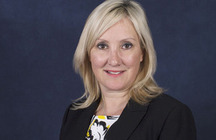Caroline Dinenage – 2019 Speech on Batten Disease
Below is the text of the speech made by Caroline Dinenage, the Minister for Care, in the House of Commons on 16 July 2019.
I congratulate my hon. Friend the Member for North East Somerset (Mr Rees-Mogg) on securing this important debate on what is a heartbreaking issue, as I am sure you will agree, Mr Speaker. He and other Members have spoken up movingly and with great passion about and on behalf of their constituents, and I am grateful to them for doing so. I understand how vital it is for patients and their families to be able to access new medicines as quickly as possible. This is one of the hardest types of debates that one has to respond to as a Minister, when we can put ourselves in the position of the families up and down the country who are facing such a desperate situation.
I will endeavour to respond as fully as I can to the issues that my hon. Friend and other Members raised, but I should begin by saying, sadly, that I am unfortunately unable to comment on matters relating to the availability of Brineura, a drug used to treat Batten disease, as this is currently subject to an active judicial review procedure.
As we have heard from hon. Members, Batten disease is a terrible condition that progresses rapidly, leading to loss of speech, mobility and vision, progressive dementia and early death. It is a rare genetic disease, and it is estimated that around three to six children in the UK are diagnosed each year, with around 30 to 50 children living with the condition. Current treatment options are limited to symptomatic relief and supportive care. I fully understand how vital any new treatment option could be to the families of children with this rare and devastating condition.
The Government want patients, including patients with rare diseases such as Batten disease, to be able to benefit from effective new treatments. It is in the interests of all NHS patients that we have a system in place for making evidence-based decisions on whether new medicines should be made routinely available to patients. That is why we have NICE, which makes independent, evidence-based recommendations for the NHS.
NICE now operates two separate programmes for the assessment of new medicines: first, a technology appraisal programme through which NICE assesses the vast majority of new medicines; and secondly, a highly specialised technologies programme that is reserved for the evaluation of very high cost drugs for the treatment of very small numbers of patients suffering from very rare diseases in England who are treated in a handful of centres in the NHS.
Where NICE recommends a treatment for use on the NHS, NHS commissioners are legally required to make funding available so that it can be prescribed to patients. This is reflected in the NHS constitution as a right to NICE-approved treatments. The intention of NICE is to have a system that means that the public can have confidence that the price paid by the NHS is consistent with the improvement in health outcomes that the medicine brings, ensuring fairness and the best possible use of funding for patients and the NHS.
As I said to the hon. Member for Newcastle upon Tyne North (Catherine McKinnell), NICE has recommended around 80% of products it has assessed. Through its important work, many thousands of patients, including patients with rare diseases, have benefited from access to effective new treatments.
It is right that NICE’s processes continue to evolve with developments in science, healthcare and the life sciences sector. That is why it keeps its methods and process updated through periodic review that includes extensive engagement with stakeholders, including patient representatives, drug manufacturers and clinicians. In this spirit of continuous development, through the 2019 voluntary scheme for branded medicines pricing and access, which was published in December, the Government announced that NICE would be undertaking a review of its methods and processes in 2019-20 for both its technology appraisal and the highly specialised technologies programme.

